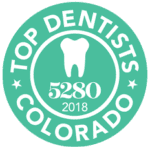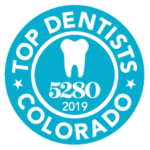 If you’re looking for fresh breath, a bright smile, and a clean mouth, it can be easy to grab the first mouthwash that catches your eye on store shelves.
If you’re looking for fresh breath, a bright smile, and a clean mouth, it can be easy to grab the first mouthwash that catches your eye on store shelves.
But not all mouthwashes are created equal. Also, different types of mouthwashes will work better for different purposes.
Begin your search by defining what you want and need when choosing a mouthwash. Are you looking for a “cosmetic” mouthwash, or do you need a therapeutic mouthwash? For what purpose will you be using this mouthwash?
Cosmetic Mouthwashes Only Rinse the Surface
Cosmetic mouthwash is a surface-level treatment that momentarily freshens breath and improves the taste in your mouth. You might use this sort of mouthwash after a pungent meal, or to revive your taste buds after an illness, but it’s not going to have any effect on the health of your mouth, long-term.
Such mouthwashes might be useful in their places. Several types of mouthwash available online and in stores offer the benefit of reducing bad tastes and unpleasant odors, for the moment. If you’re not able to brush your teeth at work, for example, you might choose to quickly swish with a cosmetic mouthwash before a meeting or important encounter. But keep in mind that cosmetic mouthwashes are only a short-term solution.
Therapeutic Mouthwashes Can Provide a Deeper Clean
Choosing a mouthwash in the therapeutic category can treat conditions with active ingredients that address your oral and dental health. Different therapeutic mouthwashes can be used for different conditions, depending upon their specific compositions and blend of ingredients.
You might be able to use a therapeutic mouthwash as a supplement to regular flossing and brushing, to address:
- gingivitis
- plaque build-up
- tooth decay
- bad breath issues
- tooth discoloration
- dry socket
- lack of saliva
Some ingredients in mouthwashes can come with adverse effects, so do be careful when determining which mouthwash you decide to use.
Note that some mouthwashes are only available by prescription, and you should never use a mouthwash that has been prescribed for someone else.
Let’s now take a look at the active ingredients in various mouthwashes. These ingredients might be present in combination or as the sole active ingredient of a formula:
- Fluoride – This is the same active ingredient you’ll find in many kinds of toothpaste. Fluoride works by helping to harden the enamel on adult teeth. Unfortunately, when you eat, your saliva can break down the calcium and phosphorus beneath the surface layer of your teeth. Fluoride works to strengthen your teeth when your saliva is less acidic, allowing your teeth to rebuild in the “remineralization” process.
- Chlorhexidine – This active ingredient might be in a prescription formula to address your issues with gum disease, or to prepare your mouth or help it recover from certain dental procedures. It may also help to prevent dry socket in the case of certain tooth extraction procedures. Chlorhexidine is antimicrobial, and it can help to control and even eradicate bad bacteria in your oral cavity. Unfortunately, though, this active ingredient is also known for its tooth staining properties, so it can’t be used as a long term treatment. It’s also capable of staining certain tooth caps or crowns. Your dentist will advise you on the best way to use a mouthwash with this ingredient.
- Cetylpyridinium chloride – This ingredient is present in a number of commercially-available mouthwashes, although it hasn’t definitively been proven to reduce the level of “bad-breath” promoting bacteria in the mouth. Several studies have indicated that this ingredient may reduce the level of “bad-breath” promoting bacteria. There’s a possibility that mouthwashes containing this as the only active ingredient might just be masking the scent with other ingredients, temporarily.
- Carbamide peroxide – This active ingredient is used in tooth-whitening preparations, and your dentist might send you home with a preparation containing this ingredient if you’re looking to lessen some of the stainings on your teeth. Note that the ingredient will not improve the health of your teeth—it only works its magic on the appearance of the tooth, creating a whiter smile.
- Enzymes as an active ingredient – If you’re having a problem producing a sufficient amount of saliva, your dentist might recommend an enzyme-containing mouthwash. These enzymes might work in your mouth to help replicate the feel of saliva and make it easier for you to cope with a reduction of saliva.
A Note of Caution About Choosing a Mouthwash
While it’s true that mouthwashes might be able to help you with various conditions, you should observe the following notes of caution when choosing a mouthwash:
- Keep all mouthwash bottles out of reach of children. Young children might try to sneak a taste of mouthwash after they see you using it, and they might swallow it in large amounts, creating a hazard for their developing bodies, due to the alcohol content and other ingredients. Always store mouthwash in a secure area of your home, and seal the cap tightly to prevent little hands from being able to open it.
- Only use your prescription mouthwash as prescribed. You might love the ability of your prescription mouthwash to whiten your teeth or freshen your breath, but excessive use can create other unintended problems in your mouth. Also, don’t offer your prescription mouthwash to anybody else.
- Evaluate your mouthwash to see if it’s ADA Approved. If a mouthwash has been evaluated by the ADA for safety and efficacy, it will come with a seal of acceptance that indicates that it has been evaluated by scientific experts in the field. Beware of mouthwashes making claims that do not come with this ADA seal.
Barron Family Dental can help you to navigate the sea of mouthwash options to determine what would work best for your needs. We offer a full-service, family-friendly practice in the Thornton area, serving families and individuals from Northglenn, Broomfield, Westminister, the Boulder-Denver area, and more. Our comfortable office and friendly, approachable staff are always happy to address your questions, making your dental experience the easiest that it can be. Please contact us today for more information about our practice, and to schedule an initial or follow-up appointment.



